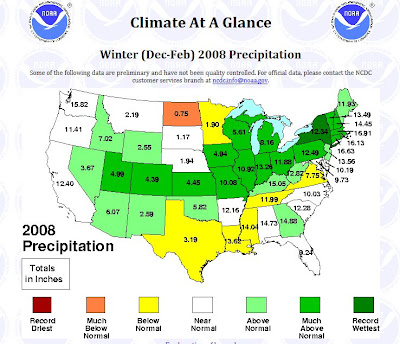SEARCH BLOG: DIESEL
I have to admit that the fuel efficiency of diesel engines along with the technology advances that have cleaned up those engines have made them seem particularly attractive as a choice for vehicles of all sizes. But there is more to the story.
Friday morning, on CSPAN's Washington Journal, Peter Coy of Business Week, answered questions from callers around the country. Other than his "folk science" wisdom about global warming, I found his answers informative and sometimes surprising. Most of us are aware of the surging demand for oil products around the world. Some of us may be aware of the various governments that subsidize gasoline for their citizens... a practice that keeps demand artificially high.
While $0.12... yes, that's a zero... per gallon gasoline in Venezuela may not generate much demand from a global perspective, when you add in subsidies in India, China, the Middle East Arab nations, and Indonesia, you get a large percentage of the world's population paying much less than the free market price of this product. So, despite the cost of gasoline in Europe or the U.S., demand in other parts of the world keeps growing rapidly.
Mr. Coy pointed out that we now have sufficient supplies of ethanol for blending into gasoline here in the U.S. and he would favor dropping tariffs on Brazilian ethanol. But it isn't the absence of ethanol that is the problem.
It is the use of ethanol in the formulation of gasoline that affects the price of diesel fuel... and the price of diesel fuel is affecting everything else.
Diesel is in strong demand partly because China is using more to run factories and generate power. Most recently, the Sichuan earthquake has increased the use of diesel generators. Meanwhile, more cars in Europe are running on diesel. And in both the U.S. and Europe, tighter sulfur standards have reduced the amount of diesel that can be produced from a barrel of crude.
The result: Refiners are fighting over crude supplies even at today's high prices because they can still make plenty of money by turning the crude into sought-after diesel. As of May 27, a barrel of diesel was going for about $32 more than a barrel of Light Louisiana Sweet crude oil, according to Platts, the energy and metals information unit of The McGraw-Hill Companies. In contrast, gasoline is plentiful, so the price spread for gasoline over crude was just $6. "The diesel is in control," says John Kingston, director of oil for Platts.
The ethanol boom is the strangest factor in the tight diesel market. Refiners don't need to produce as much gasoline now that they're blending lots of ethanol into it. Less gasoline makes for less hydrogen, which is a by-product of gasoline refining. So there's less hydrogen to use in producing low-sulfur diesel, says Phil Verleger, head of the PKVerleger consulting firm in Aspen, Colo. One more example of the law of unintended consequences.
So, let's get this straight. The government mandates low sulfur diesel fuel and the use of ethanol in gasoline to reduce the consumption of oil... and supposedly reduce the price of gasoline... but the use of ethanol reduces the necessary hydrogen from the refining process needed to produce diesel fuel which, along with the need for more oil to produce low-sulfur diesel fuel, increases oil consumption and drives up the price of gasoline.
Hell, let's just blame it on global warming.
..



















